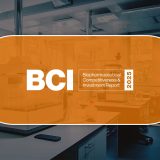New Reliance Regulatory Processes in the United Kingdom: Introducing the International Recognition Procedure (IRP)
New Reliance Regulatory Processes in the United Kingdom: Introducing the International Recognition Procedure (IRP)
Since the beginning of 2024, the United Kingdom has changed the way it approves drugs with something called the International Recognition Procedure (IRP).
This new Regulatory Reliance system replaces the old one and is designed to make the approval of drugs that have already been accepted in other significant places like the United States or Europe faster and easier.
What is the IRP and how does it work?
The IRP allows companies that already have permission to sell a drug in recognized countries to request permission to sell it in the United Kingdom using the same information they have already submitted before. This means they can skip some steps and make the drugs available more quickly to British patients.
This system covers various types of drugs, including brand-new ones and generics, but there are certain types, such as herbal and homeopathic remedies, that do not apply here.
The two recognition schedules under the IRP
The IRP offers two recognition routes based on the age and complexity of previous drug approvals:
- Recognition A (60 days): This route is for applications whose approvals by a reference regulator were granted within the last 2 years. It is a fast track that has no pauses in the process, meaning the review is completed within 60 continuous days, unless significant objections arise that require more review time.
- Recognition B (110 days): This route is for applications whose approvals are older, up to 10 years, or that present more complex situations such as changes in the manufacturing process or specific risk management needs. The Recognition B process includes a pause on day 70, allowing the company time to respond to any identified issues. If significant objections still exist at the end of the period, the review time can be extended.
Benefits of the IRP for patients and healthcare professionals
The greatest benefit of the IRP is that it can make new and necessary drugs reach patients in the United Kingdom more quickly. By using information from approvals in other trusted countries, the British regulatory agency can focus on what's most important and ensure that everything is in order without delaying the process.
This not only reduces waiting times but also ensures that patients have quick access to the latest and most effective treatments available globally.
Challenges and important considerations
Although the IRP brings many benefits, it also has its challenges. It is vital that assessments made by other countries meet British standards of safety and quality. The UK regulatory agency can still reject applications if the data is not good enough, highlighting the need for comprehensive and well-prepared documentation.
Pharmaceutical companies must understand that the IRP does not guarantee automatic approval and that each application will be carefully reviewed to ensure it meets the specific needs of the UK. This includes ensuring that everything related to manufacturing and safety controls is suitable for British patients.
The IRP is a significant step forward for drug regulation in the United Kingdom. It makes the process more efficient and helps important drugs reach those who need them more quickly, while always maintaining a strong commitment to patient safety. This system benefits not only those who need drugs quickly but also demonstrates closer collaboration between regulators from different countries, aligning efforts and standards internationally.


